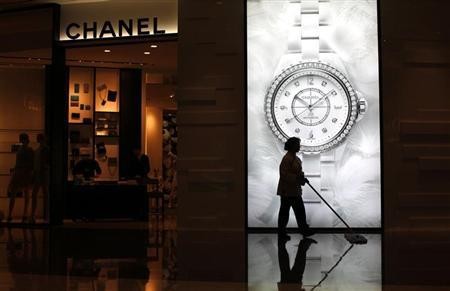Even though the attention span of the Internet generation is reportedly less than that of those who grew up in the golden age of television, it is critical that readers of Sunday's China.org op-ed proceed to the second page of the article to identify that the author is a postdoctoral fellow at China's Research Institute for Fiscal Science, based at the Ministry of Finance.
The importance of this piece of information tells the reader that the previously written perspective has come from the mind of an academic who is connected to the issue of luxury goods tax more meaningfully than a mere shopping-mall consumer. This is critical, as the credibility of information during the digital age is a pressing concern, when nearly anyone with access to the Web can disseminate a viewpoint.
The luxury tax matter is by no means new to China, as a basic online search will reveal that the world's most populous nation was also the world's second-largest luxury goods market in mid-2011. At that time, import duties that added 50 percent onto cosmetics price tags and 30 percent on top of the cost of luxury watches meant that Chinese consumers were favoring overseas merchants. In a bid to bring those luxury dollars back home, Beijing declared the reduction of the expensive taxes.
Well, one would be forgiven for experiencing deja vu on the weekend, as the State research institute's Pan Helin announced that the situation has not yet been addressed, explaining that "a product that eventually costs 10,000 yuan will have attracted 8,800 yuan in various duties and taxes during the import procedure."
While the awareness might have existed in 2011, the academic refers to the latest China Luxury Report, published by the Fortune Character Institute, which shows that over three-quarters of China's luxury purchases occurred overseas.
The Fortune Character Institute's 76-percent figure represents an immense outflow of $81 billion, causing the author to call upon Chinese authorities to "lower the luxury tax to a more reasonable level." However, the research fellow's expertise shines through when the counterfeit-goods problem is also identified as a contributing factor, whereby the "number of counterfeit goods is six times higher than authentic ones" in the domestic market.
While the nation has accepted that 2015 is the year of the new normal, surely a missed opportunity worth 81-thousand million U.S. dollars warrants further consideration? Beijing, your qualified academics are vying for your attention, so it may pay to listen.



























